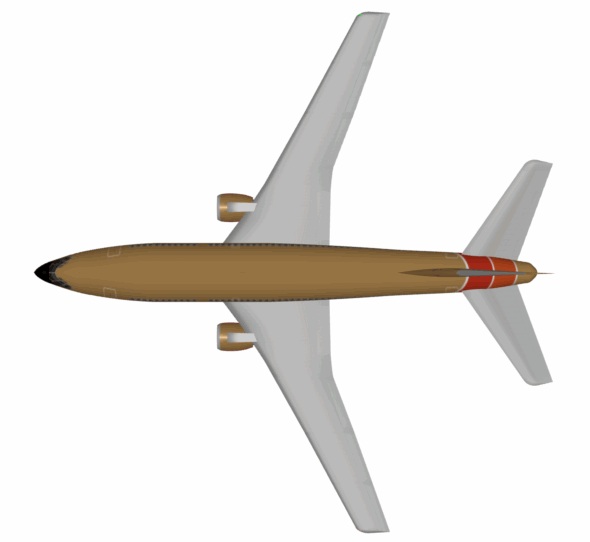<< funnel cloud | fuselage | G load >>
Back to: "F"
fuselage
- Definição1
- The main structure or body of most types of airplanes, to which the wings, tailplane, fin, rudder, and other surfaces are attached. It is the center body of the airplane designed to carry the crew, passengers, and cargo. The fuselage is generally classified according to its construction: truss type, monocoque, etc.
- Fonte1
- KUMAR, Bharat (ed.). An illustrated dictionary of aviation. New York: McGraw-Hill, c2005. 752 p.
- Definição2
- The section of the airplane that consists of the cabin and/or cockpit, containing seats for the occupants and the controls for the airplane.
- Fonte2
- FEDERAL AVIATION ADMINISTRATION. Pilot's handbook of aeronautical knowledge. [s.l.], 2008. Disponível em http:// www.faa.gov/regulations_policies/handbooks_manuals /aviation/pilot_handbook/media/PHAK %20-%20Cover-Preface.pdf. Acesso em: 26 jun.
- Fonte3
- INTERNATIONAL CIVIL AVIATION ORGANIZATION. Manual of aircraft accident and incident investigation. Part III: investigation. 1st ed. Montreal, 2011. (Doc. 9756)
- Fonte4
- INTERNATIONAL CIVIL AVIATION ORGANIZATION. Human factors digest n.33. Montreal, 1993. (Cir. 245 AN/147).
- Contexto
- Shrapnel-type pieces of metal can sometimes penetrate thwings or fuselage, possibly causing a fire the result of which in total might be suggestive of an explosion having occurred.
- However, the left wing had broken free from the fuselage, the right engine from its mountings and in doing so they had either broken or pulled on the control cables.
- Subárea
- Aircraft Structure
- Français
- fuselage
- Imagem


